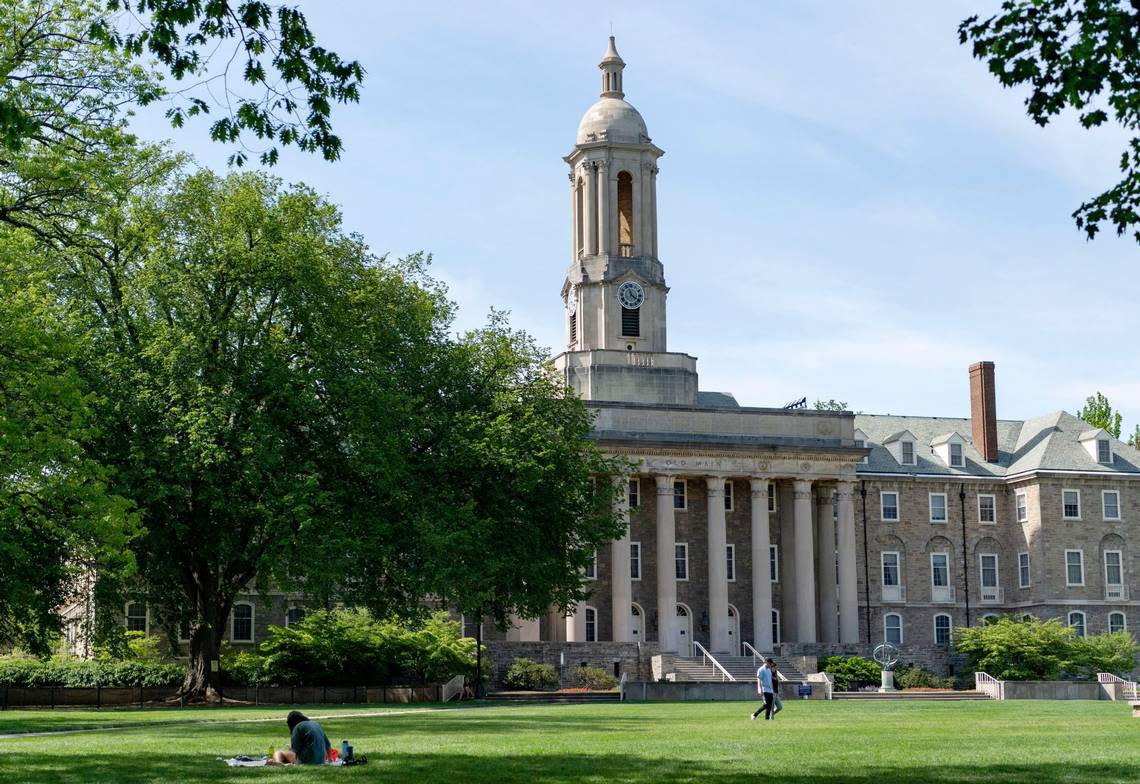Letters: Will Penn State trustees step up, make hard decisions?; Pickleball concerns are far-reaching

Will Penn State trustees step up, make hard decisions?
This is a perilous time for Penn State. We face a $100 million budget deficit, our University Park student yield is the lowest in the Big 10 while our tuition is the highest. Will our board step up and make some hard decisions? Hardly, 21 of our current 36 trustees with, collectively, 3,705 career voting opportunities, have never recorded a no vote on any issue. Not on tuition increases, new buildings, personnel contracts, not on anything! A quintessential “rubber-stamp!” An exception is Alumni Trustee Barry Fenchak voting no 37% of the time, always asking for details, benchmarks and alternatives. More Barrys are needed in our upcoming alumni election. Soon, the board will vote to approve a $700 million bond, the largest in our history, to refit Beaver Stadium. Will 2025 witness a new stadium along with campus closures?
Now a new problem has arrived. Our new provost is leaving after 10 months on the job. In my view, looking for a new job only months after appointment is a disservice to our university, especially in this tumultuous time of budget restructuring. Looking forward, however, I am hopeful that our rank-and-file faculty and staff can step up and join with our President to overcome this leadership void.
And would not our whole university community and alumni embrace a return to an earlier time when Penn State was a cherished destination for aspiring leaders and a $500,000 annual retention bonus for a football coach was unthinkable?
Al Soyster, Boalsburg
Pickleball concerns are far-reaching
The CDT recently ran an article regarding proposed new Centre Hills Country Club construction just off Scenery Drive that includes lighted pickleball and tennis courts, a pool, parking and clubhouse. We are neighboring residents and homeowners to the proposed new facility. As reported, Centre Hills is seeking a variance for elevated court lighting. The disturbance to our peaceful neighborhood, however, extends far beyond the lighting variance the club is seeking. We would refer you to a New York Times article entitled “Shattered Nerves, Sleepless Nights: Pickleball Noise Is Driving Everyone Nuts,” that describes the nationwide phenomenon of petitions, lawsuits, and police involvement brought on by incessant and unnerving pickleball noise. We will also be confronted with the traffic, including headlights, and events that will accompany the 5,600 square foot restaurant and bar.
In response to the CDT article, the Club President wrote in an April 5 membership letter of “sensitivity to the neighbors’ concerns.” To be clear, no country club representative or their engineers or architects have approached us to inquire of our concerns or to communicate efforts to mitigate the associated disturbances.
Today, existing lighted tennis/pickleball courts and pool lie in the heart of the longstanding Centre Hills complex. The decision to relocate them is mystifying, as is the disregard for the hardship this relocation will cause to our peaceful neighborhood. That hardship should be a concern to all club members and to the municipalities of College Township and State College Borough.
Mary Reeder, State College, written on behalf of 50 neighboring homeowners.
Trump’s lack of sense of humor is telling
People speculate about Donald Trump’s character. What kind of man is he? Aside from his un-fondness for dogs, what strikes me about his character is that he seems to lack a real sense of humor, least of all about his own human foibles.
His idea of humor is making snarky nicknames for people who cross him. Stuff that went over well when he was in third grade back in Queens.
Can you imagine Donald Trump joking about his aging problems, as Joe Biden joked about his when talking about the presidential campaign during the recent Gridiron Club dinner in Washington:
“One candidate’s too old and mentally unfit to be president. The other guy’s me.”
As someone who has observed American politics since 1931, I find too strange a politician who has a problem with laughter.
John N. Rippey, Bellefonte
More AI concerns
I’m thankful to CDT editors for publishing the commentary titled “The real AI nightmare: What if it serves humans too well?” The column acknowledges the potential benefit and harm to humans that comes with advances in Artificial Intelligence (AI). It also points out that “what’s good for humanity has, many times throughout history come at the expense of other sentient beings. Such is the situation today [with factory farming].”
“In the U.S. billions of animals are subjected to captivity, torturous practices and denial of their basic psychological and physiological needs. ... Entire species are subjugated and systematically slaughtered so that we can have omelets, burgers and shoes.” Confining animals to warehouses and labeling it “cage-free” is one of the hidden horrors we inflict on sentient beings. They are deemed less intelligent and therefore we ignore their capacity to feel fear, frustration, suffering and misery. AI has the potential to automate and further conceal this cruelty further from our collective conscience.
AI’s potential to surpass human intellectual abilities provides faith leaders and journalists the context to revisit our current and historical boundaries of compassion and neglect toward other sentient beings. Intelligence as the metric for extending compassion is cruel. God-willing AI rejects humankind’s cruelty. Otherwise AI learns to emulate or exceed this cruel metric of compassion we role model every time we purchase factory-farmed animal products from grocery stores, restaurants and clothing stores.
May journalism’s adage of “comforting the afflicted and afflicting the comfortable” help us expand our circle of compassion to all living beings.
Scott Pflumm, State College

